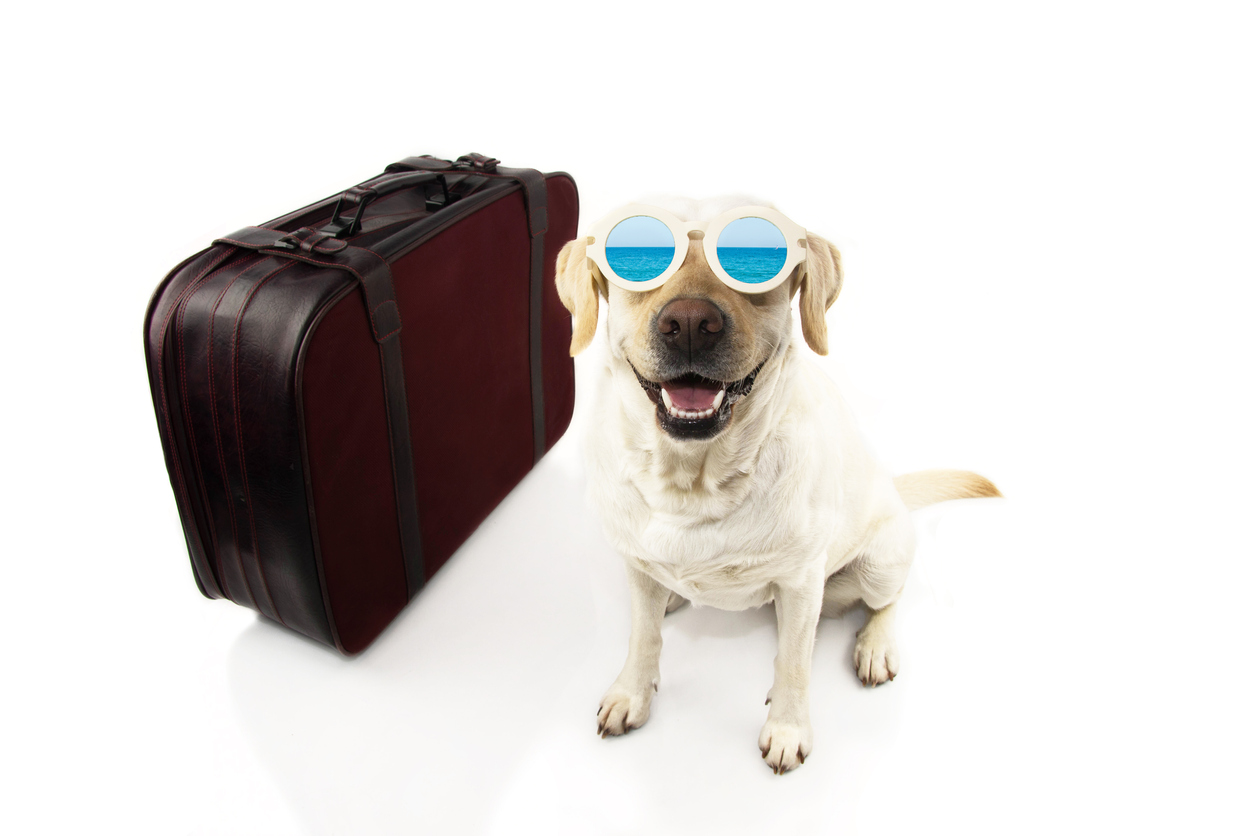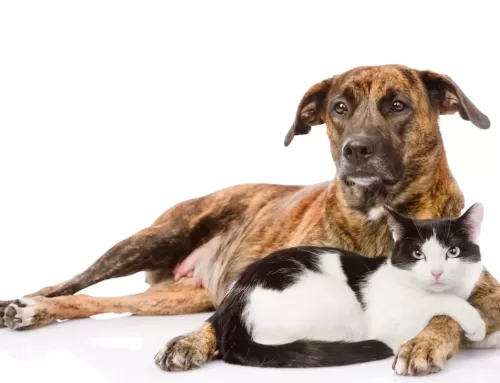Because of the COVID-19 pandemic more people are traveling by car with family and pets. If you are planning to travel with your 4-legged family members, consider these tips to keep them safe. Before you leave, review the checklist below to make sure you are ready to travel with your pet.
Make an appointment with your pet’s veterinarian
It is very important to make sure your pet is current on important vaccines: Rabies, DA2PP, Bordetella. Your veterinarian may recommend Leptospirosis vaccines if your pet will be exposed to other pets, wildlife or will be swimming in lakes or ponds. For cats, your veterinarian may recommend Rabies, FVRCP and FELV. Also, please make certain that your pet is on heartworm and flea and tick prevention before you travel. If your pet is prone to get nauseous during travel, ask your veterinarian for anti-nausea medication. Some pets become very anxious during car rides and may require an anti-anxiety medication. Your veterinarian can prescribe a safe medication to reduce your pet’s anxiety. Before you leave, get a copy of your pet’s medical records in case an unforeseen accident happens. If your pet does not have a microchip, make sure one is implanted and registered in case your pet gets lost. If your pet has a microchip, have your veterinarian scan it to make sure it is working and write down the number. Call your microchip company and confirm that your street address, phone and email address are correct.
Packing for your pet
When you are busy packing for your entire family, it is easy to forget your pet’s essentials. Make sure you pack bottled water and water/food bowls. Now more than ever do not allow your pet to drink from communal bowls. Food and treats should be packed in waterproof containers. Remember to pack all medication that your pet normally takes. Take their bedding and blankets so they can sleep in their own familiar bed to reduce stress. Don’t forget your pet’s collar, name tag, body harness and leash. Lastly, pack plenty of pick up bags for your dog’s waste and litter box and litter for your cats.
Bring a first aid kit
Packing a first aid kit may be useful if your pet has a minor injury. In a waterproof bag or container, include the following: hydrogen peroxide or antiseptic cleanser from your veterinarian, soft roll gauze, non-stick pads, vet wrap (stretch bandage wrap), gauze squares, bandage scissors, butterfly bandages, OTC triple antibiotic ointment and digital thermometer. Pack tweezers in case your pet gets a thorn or burr between the paws. Pack a sterile saline eye solution for sensitive eyes or sterile eye wash in case your pet gets something in their eyes. You can flush the eyes to remove debris. Pack a nail clipper and styptic powder in the event your pet breaks a toe nail.






